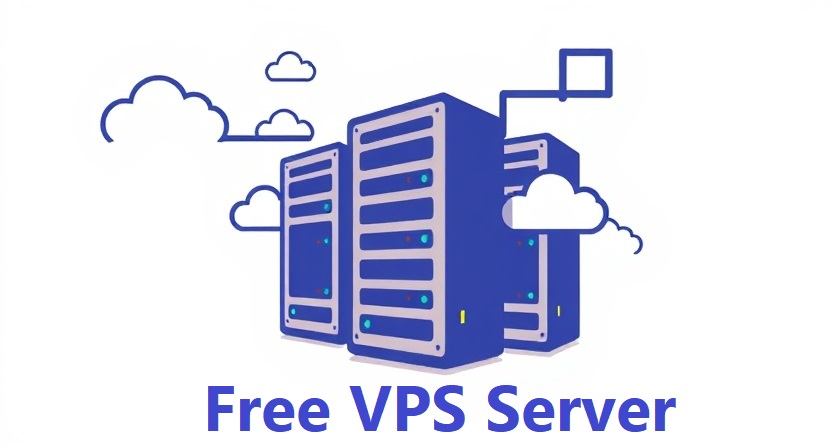Free VPS Server: The Power of Virtualization
Introduction
Free VPS Server In the world of web hosting and online services, having access to a free VPS can be a game-changer. Whether you are a developer, a student, or a small business owner, a free VPS allows you to run applications, test environments, and host websites without the financial burden. This article explores the benefits, options, and practical uses of a free VPS .
What is a VPS Server?
A Virtual Private Server (VPS) is a virtualized server that simulates a dedicated server within a larger physical server. It offers users dedicated resources such as CPU, RAM, and storage, while still being part of a shared environment.
Why Choose a VPS Server?
The primary reasons to choose a VPS server, especially a free VPS , include:
- Cost Efficiency: A free VPS server provides access to server capabilities without upfront costs.
- Increased Performance: Unlike shared hosting, VPS servers allocate dedicated resources, resulting in better performance.
- Root Access: Users have root access, allowing complete control over the server environment.
- Isolation: Each VPS is isolated from others, enhancing security and stability.
- Scalability: Many providers allow easy upgrades to paid plans, accommodating growth.
Benefits of Using a Free VPS Server
- Experimentation: A free VPS server is perfect for testing applications, learning new technologies, and experimenting with configurations.
- Development Environment: Developers can create a sandbox for application development without the cost.
- Hosting Websites: You can host personal or small business websites on a free VPS.
- Learning Resources: Ideal for those looking to learn about server management, Linux, or web technologies.
- Access to Advanced Tools: Many VPS providers offer useful tools and management dashboards, even in their free plans.
How to Obtain a Free VPS Server
Step 1: Research Providers
Numerous providers offer free VPS server options. Here are some popular choices:
- Amazon AWS: Offers a free tier for 12 months with a micro instance.
- Google Cloud Platform: Provides a free tier with limited usage.
- Oracle Cloud: Offers always-free access to two VMs with specific configurations.
- Vultr: Occasionally runs promotions that provide free credits.
- GratisVPS: Great for app hosting with free dynos for a limited time.
Step 2: Sign Up for an Account
Choose a provider and sign up. Most will require credit card information for verification, but you won’t be charged if you stay within the free tier limits.
Step 3: Set Up Your VPS
Once signed up, you can create your free VPS server. Select the operating system and configure your server according to your needs.
Step 4: Connect to Your VPS
Use SSH (Secure Shell) to connect to your free VPS. This can be done with a terminal command like ssh username@your_ip_address.
Common Use Cases for a Free VPS Server
- Web Hosting: Use your free VPS to host websites for personal use or small businesses.
- Development and Testing: Run tests for your applications or develop software in a controlled environment.
- Game Servers: Host multiplayer games for you and your friends.
- Backup Solutions: Use it to store backup data securely.
- Learning Platform: A great way to learn system administration and programming languages.
Tips for Maximizing Your Free VPS Server Experience
- Monitor Resource Usage: Be aware of your resource limits to avoid unexpected downtimes.
- Regular Backups: Implement a backup strategy to protect your data.
- Security Practices: Always keep your software updated, use firewalls, and configure security settings to protect your Free Linux VPS.
- Engage with Community: Join forums or online communities for tips and troubleshooting help.
- Explore Documentation: Most providers have extensive documentation; it’s a great resource for troubleshooting and learning.
FAQs About Free VPS Servers
Q1: Are free VPS servers reliable?
A1: Many free VPS servers are reliable for small projects, but they may not handle high traffic well. Always check user reviews and research the provider’s uptime history.
Q2: Can I upgrade my free VPS server to a paid plan?
A2: Yes, most providers offer an easy upgrade path to paid plans with more resources and features.
Q3: Is there a time limit on free VPS offers?
A3: Some providers have time-limited offers, while others provide perpetual free access with limited resources.
Q4: Do I need technical skills to manage a free VPS ?
A4: Basic knowledge of Linux and command-line interface is beneficial, but there are many resources available for beginners.
Q5: Can I host multiple websites on a free VPS server?
A5: Depending on the provided resources, you can host multiple websites. However, be cautious of the resource limits to ensure optimal performance.
Conclusion
A free VPS server can be an incredible resource for anyone looking to dive into the world of web hosting, application development, or server management. With careful selection of a provider and effective use of resources, you can leverage a free VPS to enhance your digital projects. Embrace the opportunity to learn, experiment, and grow with a free VPS, and unlock your potential in the tech-savvy world!
